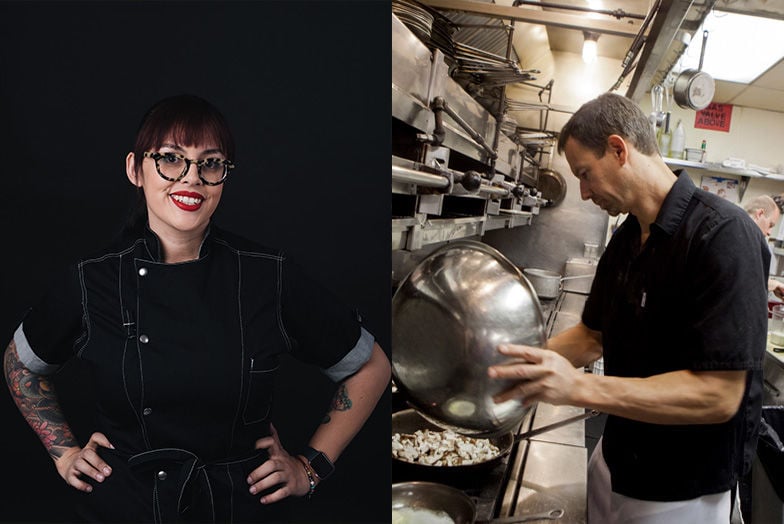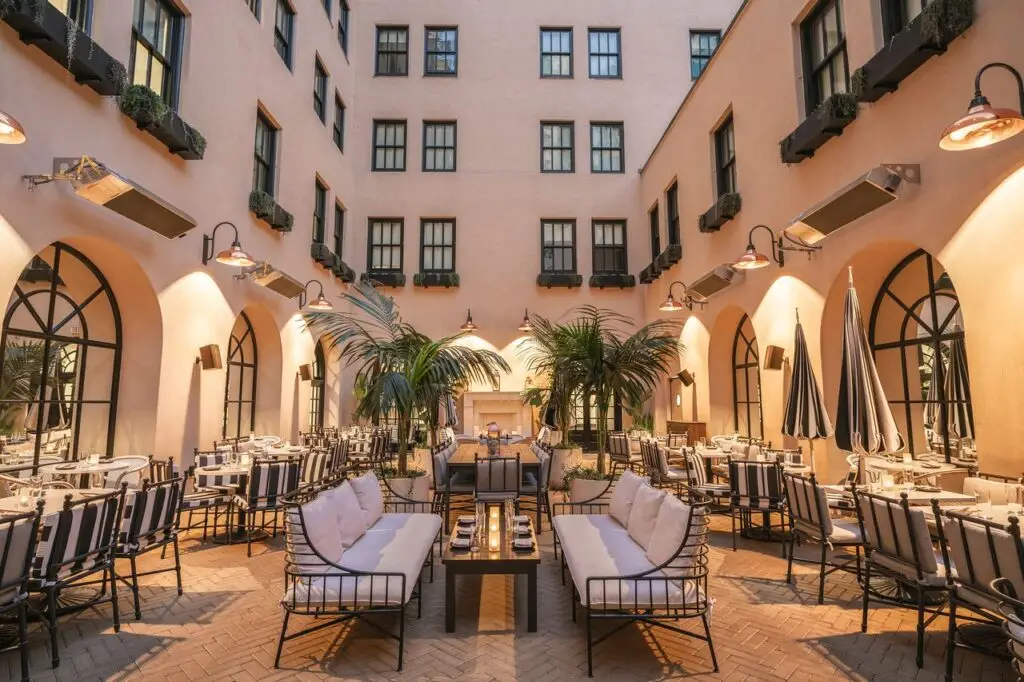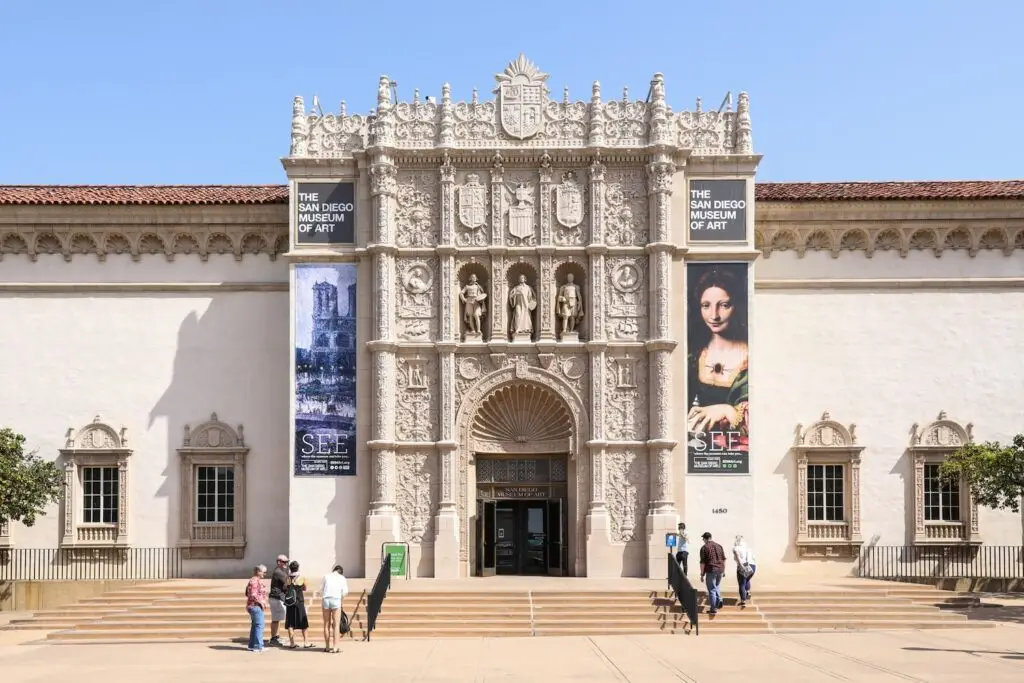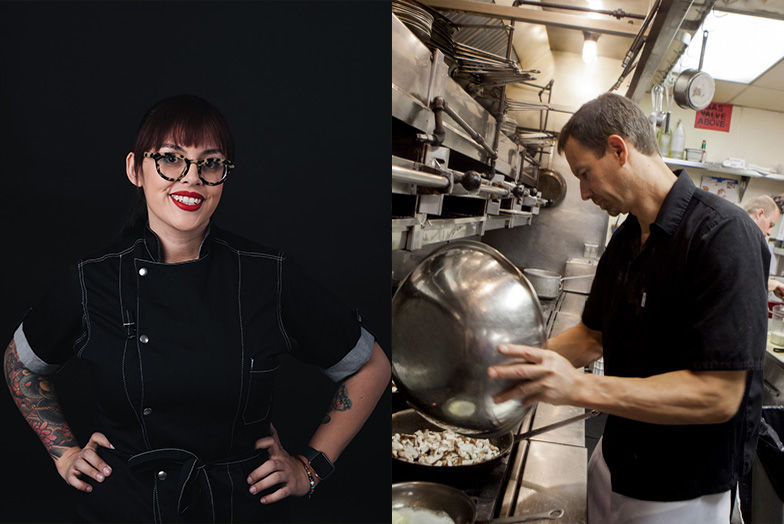Today, the semifinalists for the James Beard Awards were announced. The awards are billed as the “food industry’s highest honor” and “the Oscars of the food world.”
Let’s be clear. The James Beard Foundation is a very good, well-intentioned organization that helps many culinary professionals. But their awards are not a national award, and nowhere near a true representation of the U.S. dining scene. By not having enough judges to cover a majority of the country, calling the Beard Awards “a national award” is about as meaningful as calling the Dallas Cowboys “America’s team.” It’s like never leaving Manhattan and declaring you found the best restaurants in all of NYC.
Do we care? Many of you probably don’t and that’s a good call. I do because Iv’e been studying food here in San Diego, across the U.S., and beyond for a decade plus. I’ve been able to eat at many Beard-winning restaurants, whether through Food Network, Cooking Channel, or Big Ten Network. And I see so many food fans duped into believing the JBAs represent a thorough and equitable nationwide search. What irks me is that’s not honest nor fair to the hard-working chefs/bartenders/restaurateurs/sommeliers/brewers in cities where the JBAs have little to no representation.
The Beard Foundation could and should be honest about the holes in their coverage. How about JBA judges “checking in” at every restaurant they visit? Geotagging is very simple these days. Or they could just keep a log, old-school on the honor system (but that seems a tad untrustworthy in a tech world). If you want to really get technical, a judge could very easily upload photos of the receipt to a JBA site. That way, we—and they—could see where these judges are eating. JBA could paint a better picture of which cities, markets, and restaurants have been adequately covered, and which have been overlooked.
Until they do something even close to that, they’ve lost me. After hearing so many chefs and restaurateurs express disappointment they didn’t win—and knowing they never had a real shot to begin with—I decided to write this story last year on their behalf.
The Beard Foundation should realize it’s OK that they’re not a fully national award. Who’s got enough money to send out a legion of experts to do that? It’s a pretty big country. If they were upfront and honest about which restaurants their judges visited and how often, I could get behind they process. But instead they’ve kept it a mystery, pretended their judges have been everywhere and tried everything, when almost every industry insider I know is painfully aware that they haven’t.
This year, David Favela of San Diego’s Border X Brewing nominated as a semifinalist. Favela is a fantastic entrepreneur, good human, and cultural leader with his Latinx-focused brewery. We want his success and we hope he wins. But we’ve seen this before. In its 30-year history, no San Diego chef or restaurant or brewer has won a James Beard Award.
Every couple of years, a San Diego chef or restaurant will be named a semifinalist. Local media heralds the potential for national recognition of the city’s top food and drink talents. And every year, the predictable happens.
The winners reflect the fact that the JBAs only have the bandwidth to include culinary professionals in a handful of the biggest cities in the US (plus some from small towns that have a good underdog story or hip cache).
Multiple top chefs I spoke with for this article (almost all off the record) said the same thing: a vast majority of JBA’s California judges live in San Francisco and Los Angeles. The JBF simply doesn’t have enough representation in San Diego to give the chefs or restaurants a real chance.
For my purposes, as the food writer for San Diego Mag, I’ll focus on our city.
JBA’s website lists the 2020 Awards Committee, and it’s full of reputable food writers and editors and content creators. Plenty are from Los Angeles and the Bay Area. None are from San Diego. Last year, I asked JBA representatives multiple times to speak with someone about their San Diego coverage. They declined to comment. I didn’t beat my head against that wall again this year, but I leave this open invitation for them to discuss it.
That doesn’t mean they don’t travel to San Diego. Along with this year’s single San Diego nomination, here’s a quick look at the semifinalists over the last five years is pretty stark evidence:
2019
27 nominations from the Bay Area
17 nominations from the Los Angeles area
1 nominee from the San Diego area
2018
27 nominations from the Bay Area
21 nominations from the Los Angeles area
0 nominations from the San Diego area
2017
32 nominations from the San Francisco area
24 nominations from the Los Angeles area
0 nominations from the San Diego area
2016
39 nominations from the Bay Area
22 nominations from the Los Angeles area
3 nominations from the San Diego area (two went to Addison)
2015
38 nominations from the Bay Area
18 nominations from the Los Angeles area
2 nominations from the San Diego area (both for Addison)
I glanced over the nominations for the last decade or so, but didn’t bother tallying. It’s the same.
This doesn’t make the JBAs an empty award. They’ve made great strides to ensure minorities and women had a bigger voice and a real chance. The chefs who win are almost always excellent chefs.
But the numbers tell a pretty vivid story—only certain cities in the nation really have a chance. San Diego isn’t one of them.
I’m not going to lie. For a long time, San Diego simply didn’t have quality restaurants on par with San Francisco, L.A., Chicago, Portland, Austin, and many other cities. New York and San Francisco will probably always be the culinary meccas of the United States.
But this year were forty four Bay Area and L.A.-area chefs and restaurants worthy of nominations, while only one from San Diego was? No.
From 2017-2018, were one hundred and four Bay Area and L.A.-area chefs worthy of nomination while zero San Diego chefs and restaurants were? No.
For the five years I counted, there were 163 for the Bay Area, 102 for L.A.-area, and six for San Diego area.
That math reveals the real story. James Beard Awards simply don’t have the bandwidth to cover cities like San Diego.
I conducted a poll among some of the top San Diego chefs, and all of them pointed to four who should have already won a JBA, and are among the best in the country: Carl Schroeder (Market), William Bradley (Addison), Trey Foshee (George’s), and Jason Knibb (Nine-Ten). They also pointed to newcomers who deserve a look-see if and when the JBA’s make it to town: Anthony Wells (Juniper & Ivy), Brad Wise (Trust/Fort Oak), Brian Redzikowski (Kettner Exchange).
Addison has more certified sommeliers and world-class wines than most restaurants in the U.S. Even with Napa and Sonoma in the Bay Area, they deserve to be nominated for wine program just about every year.
In cocktails, one of the country’s best groups is Consortium Holdings (Craft & Commerce, Born & Raised, Noble Experiment, False Idol, Polite Provisions). Again, they deserve the short list every year.
Over the last couple of years, San Diego-based distiller Yuseff Cherney turned Cutwater Spirits into one of the biggest indie distilleries in the country (he recently sold to AB-InBev). Again, no nomination.
For beer, Stone Brewing Co. recently became one of the first craft beer companies to launch in China. We have the largest, most awarded craft beer industry in the country.
The list goes on. It’s not San Diego. It’s very clearly a problem with James Beard Awards’ coverage of cities like San Diego.
If JBA truly wants to be a national award, it seems they need to be more transparent about where the judges live, how much they dine out, and where.
Imagine, when the 2020 awards are announced, JBF could say: “Our judges ate at 354 San Francisco restaurants, 185 Los Angeles restaurants, 12 San Diego restaurants, 20 million New York restaurants, 8 million Chicago restaurants, etc.”
Maybe this seems excessive. But the celebration of James Beard Awards is pretty excessive. If they truly want to be seen as the highest food award in the U.S., they need to utilize technology to ensure they’re inclusive enough to warrant that claim. To make sure they’re not missing entire cities.
I’m sure San Diego isn’t alone.

The Holes in the James Beard Awards
PARTNER CONTENT
Claudette Zepeda-Wilkins (left) and Carl Schroeder



















